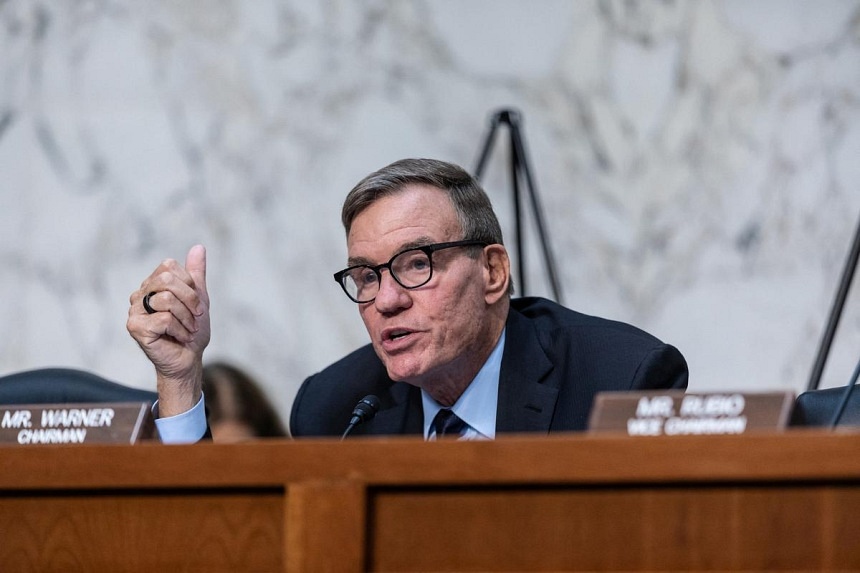
Similar Posts

WASHINGTON – A U.S. Senate Judiciary subcommittee overseeing technology issues will hold a hearing Tuesday on Chinese hacking incidents, including a recent incident involving American telecom companies.
The hearing to be chaired by Senator Richard Blumenthal will review the threats “Chinese hacking and influence pose to our democracy, national security, and economy,” his office said, adding the senator plans “to raise concerns about Elon Musk’s potential conflicts of interest with China as Mr. Musk becomes increasingly involved in government affairs.”
Musk, the head of electric car company Tesla, social media platform X and rocket company SpaceX, emerged during the election campaign as a major supporter of U.S. President-elect Donald Trump. Trump appointed him as co-head of a newly created Department of Government Efficiency to “slash excess regulations, cut wasteful expenditures, and restructure Federal Agencies.”
Musk, who was in China in April and reportedly proposed testing Tesla’s advanced driver-assistance package in China by deploying it in robotaxis, did not immediately to requests for comment.
The hearing will include CrowdStrike Senior Vice President Adam Meyers and Telecommunications Industry Association CEO David Stehlin, Strategy Risks CEO Isaac Stone Fish and Sam Bresnick, research fellow at the Center for Security and Emerging Technology at Georgetown University,
Last week, U.S. authorities said China-linked hackers have intercepted surveillance data intended for American law enforcement agencies after breaking in to an unspecified number of telecom companies, U.S. authorities said on Wednesday.
The hackers compromised the networks of “multiple telecommunications companies” and stole U.S. customer call records and communications from “a limited number of individuals who are primarily involved in government or political activity,” according to a joint statement released by the FBI and the U.S. cyber watchdog agency CISA.
The announcement confirmed the broad outlines of previous media reports that Chinese hackers were believed to have opened a back door into the interception systems used by law enforcement to surveil Americans’ telecommunications.
It follows reports Chinese hackers targeted telephones belonging to then-presidential and vice presidential candidates Donald Trump and JD Vance, along with other senior political figures, raised widespread concern over the security of U.S. telecommunications infrastructure.
Beijing has repeatedly denied claims by the U.S. government and others that it has used hackers to break into foreign computer systems.
Last month, a bipartisan group of U.S. lawmakers asked AT&T, Verizon Communications and Lumen Technologies to answer questions about the reporting hacking of the networks of U.S. broadband providers. REUTERS
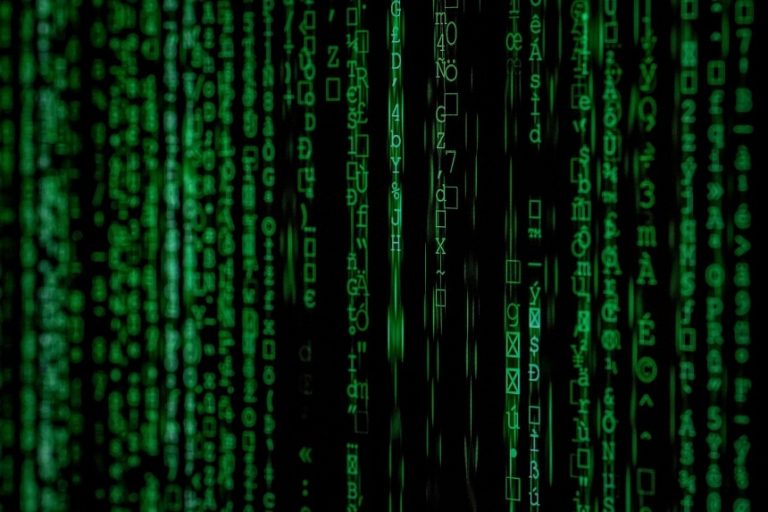
It is a sad but undeniable truth that some of the world’s most profitable products are terrible. That lightbulb realisation dawned on me when I worked on the Financial Times’ Lex column and learnt that the most successful pharmaceutical drugs – for manufacturers if not patients – were those that alleviated symptoms but did not cure the complaint. Eliminate the problem and you kill demand. Where is the financial incentive in that?
Lightbulbs, curiously enough, are another example of the same phenomenon. Why develop everlasting lightbulbs (the Centennial Bulb has been in continuous operation in a Californian fire station since 1901) when you can sell ones that blow periodically? Economic theory suggests that these inefficiencies should be competed away. Real life does not always work that way.
No contract
ST app access on 1 mobile device
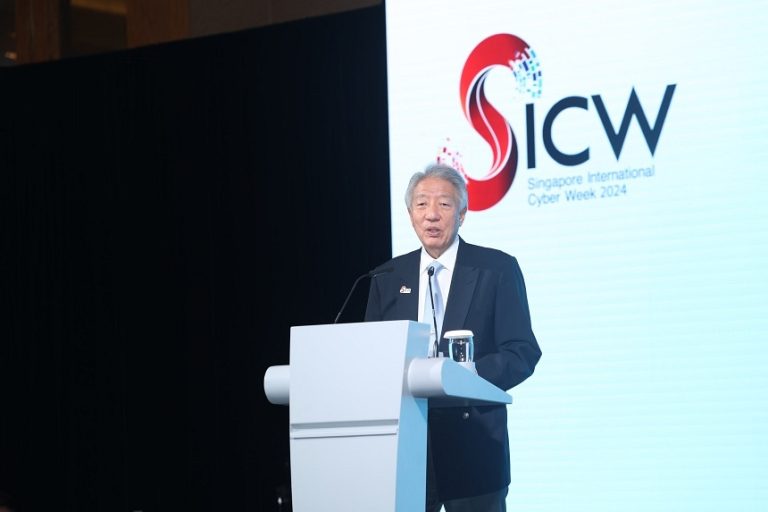
“Singapore Issues New Guidelines to Protect Businesses from AI Security Risks”
SINGAPORE – Rogue chatbots that spew lies or racial slurs may be just the beginning, as maliciously coded free chatbot models blindly used by businesses could unintentionally expose sensitive data or result in a security breach.
In new guidelines published on Oct 15, Singapore’s Cyber Security Agency (CSA) pointed out these dangers amid the artificial intelligence (AI) gold rush, and urged businesses to test what they plan to install rigorously and regularly.
This is especially crucial for firms that deploy chatbots used by the public, or those linked to confidential customer data.
Frequent system tests can help weed out threats like prompt injection attacks, where text is crafted to manipulate a chatbot into revealing sensitive information from linked systems, according to the newly published Guidelines on Securing AI Systems .
The guidelines aim to help businesses identify and mitigate the risks of AI to deploy them securely. The more AI systems are linked to business operations, the more they should be secured.
Announcing the guidelines at the annual Singapore International Cyber Week (SICW) at the Sands Expo and Convention Centre on Oct 15, Senior Minister and Coordinating Minister for National Security Teo Chee Hean said the manual gives organisations an opportunity to prepare for AI-related cyber-security risks while the technology continues to develop.
Mr Teo said in his opening address that managing the risks that come with emerging technology like AI is an important step to build trust in the digital domain. He urged the audience to learn lessons from the rapid rise of the internet.
“When the internet first emerged, there was a belief that the ready access to information would lead to a flowering of ideas and the flourishing of debate. But the internet is no longer seen as an unmitigated good,” he said, adding that there is widespread recognition that it has become a source of disinformation, division and danger.
“Countries now recognise the need to go beyond protecting digital system to also protecting their own societies,” he said. “We should not repeat these mistakes with new technologies that are now emerging.”
The ninth edition of the conference is being held between Oct 14 and 17 and features keynotes and discussion panels by policymakers, tech professionals and experts.
AI owners are expected to oversee the security of AI systems from development, deployment to disposal, according to CSA’s guidelines, which do not address the misuse of AI in cyber attacks or disinformation.
In a statement released on Oct 15, CSA said: “While AI offers significant benefits for the economy and society… AI systems can be vulnerable to adversarial attacks, where malicious actors intentionally manipulate or deceive the AI system.”
Organisations using AI systems should consider more frequent risk assessments than with conventional systems to ensure tighter auditing of machine learning systems.
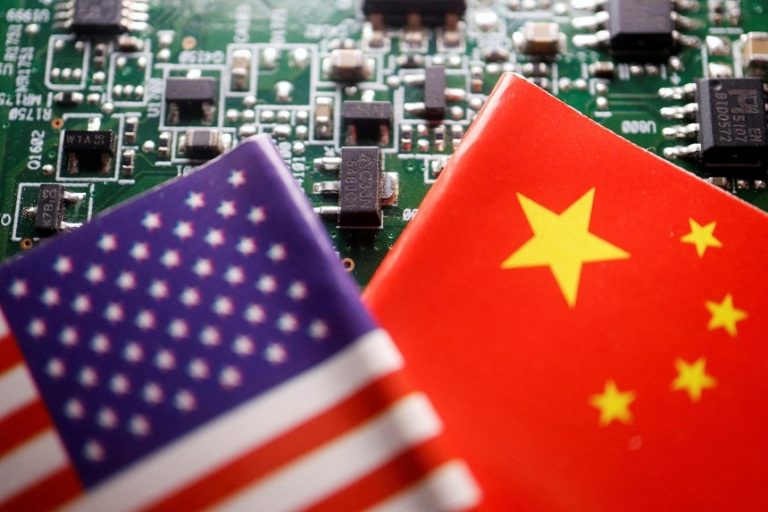
WASHINGTON – Chinese hackers are positioning themselves in US critical infrastructure in the event of a clash with the United States, a top American cybersecurity official said on Nov 22.
Ms Morgan Adamski, the executive director of US Cyber Command, said ongoing Chinese-linked cyber operations are aimed at gaining “an advantage in the event of a major crisis or conflict with the US.”
Ms Adamski made the comments to researchers at the Cyberwarcon security conference in Arlington, Virginia.
On Nov 21, US Senator Mark Warner told the Washington Post that a suspected China-linked hack on US telecommunications firms was “the worst telecom hack in our nation’s history – by far.”
That cyberespionage operation, dubbed “Salt Typhoon,” has included stolen call records data, the compromise of communications of top officials of both major US presidential campaigns before the Nov 5 election, and telecommunications information related to US law enforcement requests, the FBI said, in a recent statement.
Beijing routinely denies cyber operations targeting US entities.
The Chinese Embassy in Washington did not immediately respond to a request for comment. REUTERS
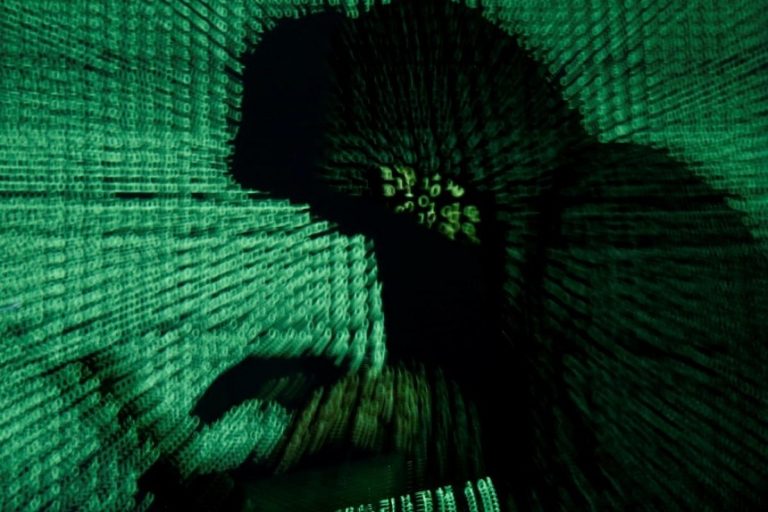
An Iranian hacking group is actively scouting U.S. election-related websites and American media outlets as election day nears, according to a new Microsoft blog published on Wednesday. Researchers say the activity suggests “preparations for more direct influence operations.”
The hackers – dubbed Cotton Sandstorm by Microsoft and linked to Iran’s Islamic Revolutionary Guard Corps – performed reconnaissance and limited probing of multiple “election-related websites” in several unnamed swing states, the report notes. In May, they also scanned an unidentified U.S. news outlet to understand its vulnerabilities.
“Cotton Sandstorm will increase its activity as the election nears given the group’s operational tempo and history of election interference,” researchers wrote. The development is particularly concerning because of the group’s past efforts.
Iran’s mission to the United Nations did not immediately respond to a request for comment. In recent past comments, they denied any involvement in 2024 election-related hacking activity.
In 2020, Cotton Sandstorm launched a different cyber-enabled influence operation shortly before the last presidential election. Posing as the right-wing “Proud Boys,” the hackers sent thousands of emails to Florida residents, threatening them to “vote for Trump or else!”.
The group also released a video on social media, purporting to come from hacktivists, where they showed them probing an election system. While that operation never affected individual voting systems, the goal was to cause chaos, confusion and doubt, senior U.S. officials said at the time.
Following the 2020 election, Cotton Sandstorm also ran a separate operation that encouraged violence against U.S. election officials who had denied claims of widespread voter fraud, Microsoft said.
The Office of the Director of National Intelligence, which is coordinating the federal effort to defend the election from foreign influence, did not immediately respond to a request for comment. REUTERS
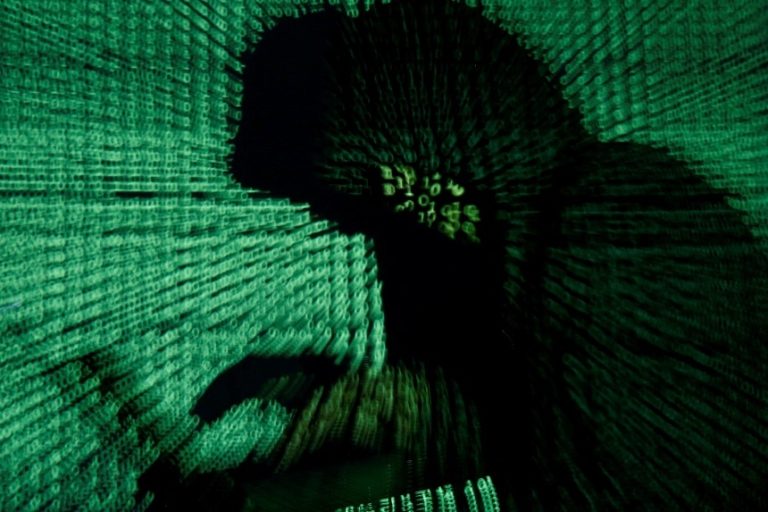
SINGAPORE– The Cyber Security Agency (CSA) is starting a study aimed at raising the productivity and professionalism of cyber-security workers.
It may result in an outline of the competencies required of chief information security officers – known by the acronym Cisos – and their teams of security executives who are in high demand, given their key role amid surging cyber attacks.
Ms Veronica Tan, CSA’s director at safer cyberspace division, told The Straits Times: “For organisations, clarity in standards and desired skills at various roles will mean greater improvements in workforce competency and productivity.”
The study will involve industry players, training institutions and certification bodies, she added.
CSA’s plan comes as companies warm to the idea of designated cyber-security personnel, but sometimes find themselves hindered by limited budgets and a shortage of skilled talent.
Mr Nyan Yun Zaw, the first Ciso at Singapore cyber security advisory firm Athena Dynamics, said: “The industry turnover rate for Cisos is unfortunately pretty high because it is a highly challenging and stressful job.
“When the organisation faces a security incident, this is the first person everyone looks to.”
Chief information security officer, a title that arose up in the 1990s after Citibank appointed one following a cyber attack, have risen in prominence in recent years as some countries made mandatory disclosures of material cyber breaches or attacks.
There have also been high-profile cases of criminal charges taken against such officers, such as at Uber and SolarWinds.
Mr Zaw took on the job at Athena Dynamics just over a year ago when his company expanded it beyond IT infrastructure and support.
His background was a string of roles ranging from engineering, cyber security, programming, to business development and sales in the firm since its set-up in 2014.
He added to his expertise by becoming a Certified Information Systems Security Professional, a label granted by the International Information System Security Certification Consortium, also known as ISC2.
He said: “We felt that there is a need to have a dedicated Ciso since we are also part of a listed company.”
Cisos spend their time securing their companies’ assets, learning new threats and technologies, and working with cross-functional teams, he said.
He added: “Ciso is a management position, so it is important for a Ciso to be knowledgeable in various aspects of cyber ranging from governance, risk and compliance to network security architectures.”
In the 12 months leading up to September, job portal Indeed recorded 48 per cent of its postings in Singapore seeking communication skills in cyber security leaders, compared to 38 per cent specifying expertise in IT, and 16 per cent in information security.
Around the same time, the number of postings for such roles on its portal dropped 36 per cent, suggesting that firms might be filling positions through internal promotions or team restructuring, said Mr Saumitra Chand, Indeed’s career expert.
“This decline may be due to the demanding nature of leadership positions like Cisos, which require high levels of expertise and specialisation,” he said.
To help small and medium-sized enterprises (SMEs) or non-profit organisations that cannot afford designated security personnel, CSA launched its CISO-as-a-Service (CISOaaS) scheme in February 2023.
It has received about 200 applications so far.
Organisations tapping the scheme can use CSA’s panel of 19 vendors to audit their cyber health and guide them to attain CSA’s Cyber Essentials and Cyber Trust marks, with up to 70 per cent subsidies.
CSA is planning updates to the two marks to reflect new risks in cloud, operational technology and Artificial Intelligence (AI), said Ms Tan.
Digital agency Digipixel, which has used CISOaaS, said achieving both trust marks helped it gain trust from customers.
Its director, Mr Leon Tan, said: “Pooled services can sometimes lack industry-specific context, but our collaboration with CSA has been a productive exchange.”
Mr Dave Gurbani, chief executive at CyberSafe, an appointed vendor, said: “We start by conducting a cyber-security health plan, like a doctor’s check-up.”
The firm then helps its mostly SME clients work through their internal controls, configurations, policies, and training to pass the audits for CSA’s marks.
“Many SMEs still think of cyber security in terms of anti-virus tools or maybe a firewall. To put it simply, that’s like thinking you’re ready for the day just because you have your socks and shoes on,” Mr Gurbani said.
Gaps that frequently show up include outdated systems, misconfigurations from third-party vendors, and weak access controls like shared passwords and lack of Multi-Factor Authentication.
“Without guidance, these vulnerabilities can be hard to recognise and fix,” Mr Gurbani added.
Another vendor, Momentum Z, takes firms calling on the CISOaaS service through a three-pronged assessment of employees’ cyber-security basics, company’s processes and policies, and cyber-security infrastructure such as firewall, antivirus, back-up data use and endpoint security.
Chief executive Shane Chiang said he has had clients that have not changed passwords for six years, or who had been granting external vendors remote access to their network with no inkling.
He said: “’Clients are often surprised to learn the vulnerabilities in their systems, which reinforces the importance of having a Ciso to bring structure and foresight into cyber security.”
CSA’s 2023 cyber security health survey released in March noted that only one in three organisations have fully implemented at least three of CSA’s five categories of recommended measures.
More organisations need help with knowing what data they have, where the data is stored and how to secure the data, CSA’s Ms Tan said. Businesses are also weak at safeguarding their systems and networks against malicious software, as well as guarding access to data and services.
She urged more organisations to tap CSA’s tools to up their game, adding: “Unless all essential measures are adopted, organisations are still exposed to unnecessary cyber risks, especially as they accelerate digitalisation and adopt fast-evolving technologies such as AI.
“Partial adoption of measures is inadequate.”
